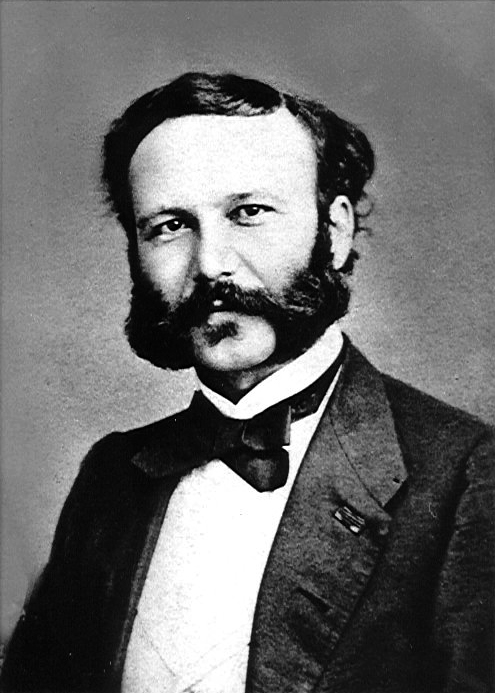
Henry Dunant
Henry Dunant was a Swiss humanitarian and social activist best known for founding the International Committee of the Red Cross (ICRC) in 1863. His experiences during the Battle of Solferino in 1859 inspired him to advocate for the humane treatment of wounded soldiers and the establishment of a neutral organization dedicated to providing aid in times of war. Dunant's vision laid the groundwork for modern humanitarian law and earned him the first Nobel Peace Prize in 1901.
Born on May 08, 1828 (197 years old)
Global Media Ratings
Countries Mentioned
| Country | Mentions | Sentiment | Dominance | + Persistence | x Population | = Reach | x GDP (millions) | = Power |
|---|---|---|---|---|---|---|---|---|
| Switzerland | 1 | 9.00 | 0.09% | +0% | 8,654,622 | 7,727 | $700,000 | 625$ |
| Totals | 1 | 8,654,622 | 7,727 | $700,000 | 625$ |
Interactive World Map
Each country's color is based on "Mentions" from the table above.
Recent Mentions
 Switzerland:
Henry Dunant is mentioned as the founder of the Red Cross.
9
Switzerland:
Henry Dunant is mentioned as the founder of the Red Cross.
9
 United Kingdom:
Henry Dunant co-established the Red Cross and wrote A Memory of Solferino about human nature.
8
United Kingdom:
Henry Dunant co-established the Red Cross and wrote A Memory of Solferino about human nature.
8
 Canada:
Henry Dunant was appalled by the Battle of Solferino and helped establish the International Committee of the Red Cross.
9
Canada:
Henry Dunant was appalled by the Battle of Solferino and helped establish the International Committee of the Red Cross.
9
 Monaco:
Henry Dunant was a simple citizen who imagined a unique solution and convinced the powerful to realize it.
8
Monaco:
Henry Dunant was a simple citizen who imagined a unique solution and convinced the powerful to realize it.
8
 El Salvador:
Henry Dunant organized local inhabitants to assist the wounded during the Battle of Solferino.
9
El Salvador:
Henry Dunant organized local inhabitants to assist the wounded during the Battle of Solferino.
9
 Switzerland:
Henry Dunant, the founder of the Red Cross, was born on May 8, 1828, in Geneva.
8
Switzerland:
Henry Dunant, the founder of the Red Cross, was born on May 8, 1828, in Geneva.
8
 Ecuador:
Henry Dunant is celebrated for founding the International Red Cross and being the first Nobel Peace Prize laureate.
9
Ecuador:
Henry Dunant is celebrated for founding the International Red Cross and being the first Nobel Peace Prize laureate.
9
 Peru:
Henry Dunant is celebrated for founding the Red Cross and for his humanitarian efforts.
9
Peru:
Henry Dunant is celebrated for founding the Red Cross and for his humanitarian efforts.
9
 Ecuador:
Henry Dunant is recognized as the founder of the Red Cross, commemorated on May 8th each year.
9
Ecuador:
Henry Dunant is recognized as the founder of the Red Cross, commemorated on May 8th each year.
9
 Venezuela:
La organización internacional, fundada por el suizo Henry Dunant en el año de 1864.
9
Venezuela:
La organización internacional, fundada por el suizo Henry Dunant en el año de 1864.
9